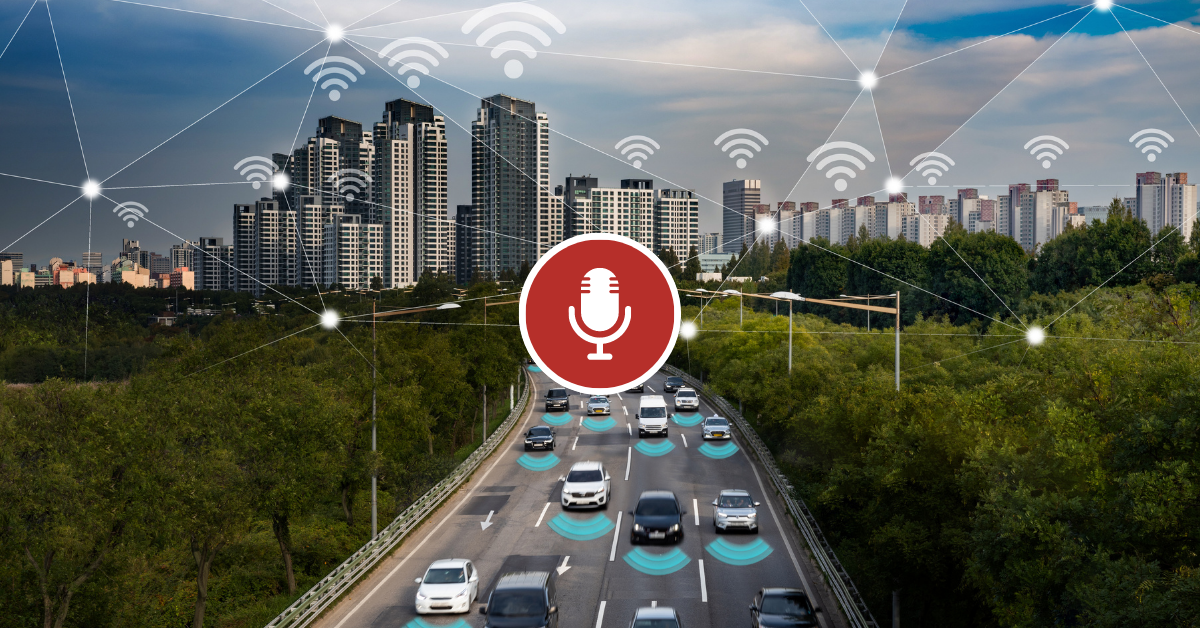Monday, May 10, 2021 | 4:00 PM EDT - 5:00 PM EDT
Zoom webinar | Zhengzhen Tan, Sarah Tatsis, Weiping Wu
In recent years, smart city technology has become increasingly present in our lives. New developments in 5G, AI, and the Internet of Things allow municipalities to collect and share data, improving management and services, while raising questions about privacy and security. With more than 70 percent of the world’s population expected to live in cities by 2030, the implications are significant. What are the most recent developments in the field? How can the United States and China work together to shape standards for this technology? How can our two nations encourage greater smart city innovation?
On May 10, 2021, the National Committee hosted a virtual program with Ms. Zhengzhen Tan and Ms. Sarah Tatsis, as they discussed smart cities and areas for potential cooperation in a conversation moderated by urban planning expert Dr. Weiping Wu.
Below are five key takeaways from the presentation:
- Weiping Wu: The term smart cities refers to the use of digital technology and data to improve city operations. Large technology firms, such as IBM and Alibaba, are important players in smart city applications.
- Zhengzhen Tan: China’s smart cities efforts began in 2010, and in 2017 the Chinese Communist Party released a report that identified digitization as a national priority. To sustain and afford the continual upgrading of smart cities infrastructure, private sector engagement is critical.
- Sarah Tatsis: In North America, there are smart cities initiatives to improve transportation, e-governance, and water security, as well as to work to reduce CO2 emissions and energy consumption. These projects are driven by public-private partnerships, with help from community organizations to ensure that all are included.
- Dr. Tan: Similar to the United States, different cities in China may focus on different aspects of smart city development. Additionally, China has a vast disparity in terms of its regional development due to cultural and economic differences.
- Ms. Tatsis: Cybersecurity is a major area of focus for developers of smart cities to protect privacy and personal information. Since there has been an expansion of the number and complexity of connected devices, increasing cybersecurity talent is a major smart cities initiative.
Speakers

Zhengzhen Tan
Zhengzhen Tan is a research scientist and lecturer at the MIT Center for Real Estate as well as executive director of the Sustainable Urbanization Lab. Ms. Tan teaches graduate courses at both MIT’s School of Architecture & Planning, and the Sloan School of Management. She directs the China Future City Program, which initiated the Future City Innovation Connector. Ms. Tan’s research focuses on urbanization, digital innovation, and transformation in the urban development industry. She is the co-editor of Towards Urban Vibrancy: Patterns and Practices of Asia’s New Cities (2020), and author of the chapter “Digital Technology in Urban Systems: New Opportunities in New Cities.” Ms. Tan and her teaching team won an MIT J-WEL Grant in Higher Education Innovation. Ms. Tan holds a bachelor’s degree in urban planning from Tongji University, and a master’s degree in architecture from the National University of Singapore.

Sarah Tatsis
Sarah Tatsis is senior vice president, Advanced Technology Development Labs, at BlackBerry. Ms. Tatsis leads a team responsible for taking new technologies from ideation to incubation to delivery into BlackBerry products; it is currently developing BlackBerry IVY, an intelligent vehicle data platform that will allow innovation in driver and passenger experiences and improve operations of connected vehicles. Over the last 20 years, Ms. Tatsis has held a variety of roles at BlackBerry including in quality, operations, customer support, pricing, strategic projects, and research & development. Ms. Tatsis holds a bachelor’s degree in mathematics and business administration and a master’s degree of mathematics in statistics from the University of Waterloo in Canada.
Moderator

Weiping Wu
Weiping Wu is professor of urban planning at Columbia University’s Graduate School of Architecture, Planning and Preservation, and director of the urban planning master’s degree program. She is also on the faculty of the Weatherhead East Asian Institute and Columbia Population Research Center. Dr. Wu received her Ph.D. in urban planning and policy development from Rutgers University, master’s degree in urban planning, and bachelor’s degree in architecture, both from Tsinghua University. She is a fellow of the National Committee on U.S.-China Relations’ Public Intellectuals Program. Dr. Wu aims to understand urban dynamics in developing countries in general and in China in particular, focusing on migration, housing, and infrastructure of Chinese cities. Dr. Wu has written several books, including The Chinese City (second edition, 2020), which offers a critical understanding of China’s urbanization.

